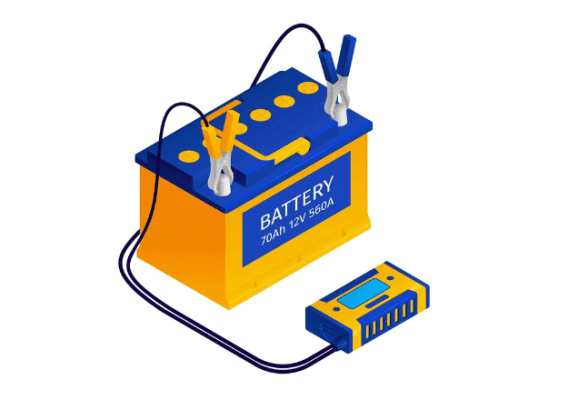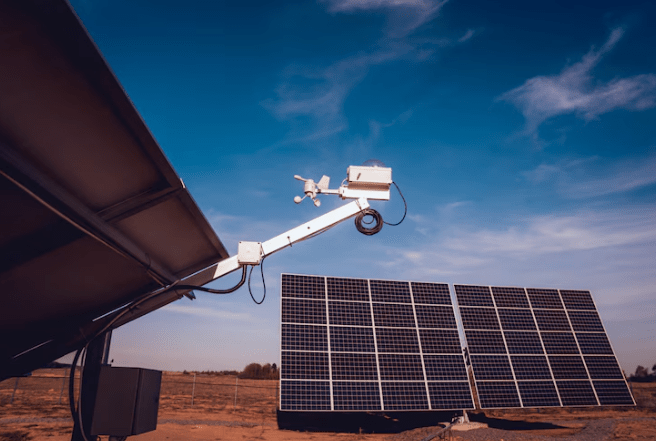Dreaming of slashing your electricity bills and embracing clean energy? A 3kW solar system might be your perfect match. But before you dive headfirst into the world of solar panels, understanding the costs involved is crucial. This blog post takes a deep dive into the pricing of 3kW solar systems in Karachi, Pakistan, giving you a comprehensive picture to make an informed decision.
Factors Influencing the Price Tag
The price of your 3kW solar system in Karachi isn’t a one-size-fits-all situation. Several factors play a role, including:
System Components: The quality and brand of solar panels, inverter, batteries (if opting for an off-grid system), mounting structure, and wiring will significantly impact the cost. Tier 1 solar panels, known for their performance and durability, will naturally be more expensive than lesser-known brands. Similarly, a high-efficiency inverter will cost more but convert sunlight into usable electricity more effectively.
On-Grid vs. Off-Grid: On-grid systems connect to the utility grid, allowing you to sell excess electricity back to the power company. Off-grid systems, on the other hand, function independently and require batteries for nighttime use. Off-grid systems are generally more expensive due to the inclusion of batteries.
Government Incentives: The Government of Pakistan offers subsidies and net metering policies to encourage solar power adoption. Be sure to factor in any applicable incentives when calculating the final price.
Installation Costs: Labor charges and the complexity of your roof structure can influence installation costs.
Price Estimates for 3kW Solar Systems in Karachi
Based on current market trends (as of June 21, 2024), you can expect to pay anywhere between Rs. 360,000 to Rs. 650,000 for a 3kW solar system in Karachi. Here’s a breakdown:
Low-Range (Rs. 360,000 – Rs. 500,000): This range includes basic setups with mid-range components. It’s suitable for those prioritizing affordability over premium brands.
Mid-Range (Rs. 450,000 – Rs. 650,000): This is the sweet spot for most homeowners. You’ll find reliable Tier 1 solar panels, efficient inverters, and a good balance between quality and cost.
High-Range (Rs. 550,000 – Rs. 750,000): This range features premium brands, high-efficiency components, and potentially additional features like monitoring systems.
Beyond the Price Tag: Additional Considerations
Remember, the upfront cost is just one aspect. Here are some other factors to consider:
Warranty: A longer warranty on your system’s components translates to peace of mind and potentially lower maintenance costs in the long run.
After-Sales Service: Opt for a reputable installer who offers reliable after-sales service to ensure your system runs smoothly.
System Size: A 3kW system might be sufficient for a small household, but a larger home might require a higher capacity system, impacting the cost.
Financing Your Solar Journey
Several financing options can make your solar dream a reality. Consider loans from banks or microfinance institutions specifically designed for solar power projects. Additionally, some solar companies offer financing plans to ease the initial financial burden.
Solar Inverters for 3kW Solar System
Many brands offer solar inverters for both on-grid and off-grid setups, Here are some of the solar inverters available for 3kW systems:
-
-
Growatt SPH 3000
-
- Key Features: Growatt is a leading brand in the solar inverter market, and the SPH 3000 is a popular choice for its affordability and efficiency. It boasts a maximum efficiency of 98.2%, ensuring you get the most out of your solar panels. Additionally, the SPH 3000 comes with multiple Maximum Power Point Tracking (MPPT) trackers, allowing it to optimize power production even under uneven sunlight conditions.
-
-
Solax X1 Air 3.0K
-
- Key Features: The Solax X1 Air 3.0K is known for its lightweight and compact design, making it ideal for installations where space is a constraint. It’s also a great choice for those looking for a sleek and modern aesthetic. This inverter delivers a maximum efficiency of 98.5%, ensuring exceptional power conversion.
-
-
Fronius Symo 3.0-K
-
- Key Features: Fronius is a renowned brand known for its premium inverters. The Fronius Symo 3.0-K offers top-tier performance with a peak efficiency of 98.8%. It comes with integrated data logging and Wi-Fi connectivity, allowing for easy monitoring of your system’s performance. While it may be on the higher end price-wise, Fronius inverters are known for their durability and extended warranties, making them a worthwhile investment for those seeking the best possible performance and reliability.
Additional Considerations When Choosing a 3kW Solar Inverter in Pakistan
- Warranty: A longer warranty period provides peace of mind and potentially lower maintenance costs in the long run.
- After-Sales Service: Opt for a reputable installer who offers reliable after-sales service to ensure your system runs smoothly.
- Brand Reputation: While lesser-known brands may offer competitive pricing, established brands often come with a proven track record of quality and reliability.
By carefully considering these factors and the highlighted features of each inverter, you can make an informed decision to select the best 3kW solar inverter for your specific needs and budget.
-
-
Huawei SUN2000L-3KTL
-
- Key Features: Huawei is a major player in the solar industry, and the SUN2000L-3KTL is a popular choice for its smart features and high efficiency. It boasts a maximum efficiency of 98.4% and comes equipped with Huawei’s AI FusionSolar Smart String Monitoring service. This advanced monitoring system allows for real-time performance tracking and potential early detection of issues, maximizing system uptime and optimizing power generation.
-
-
Solis RHI-3K-48G
-
- Key Features: Solis is a rapidly growing inverter brand known for its focus on innovation and value. The RHI-3K-48G offers a compelling combination of affordability and performance, with a maximum efficiency of 98.3%. This inverter is known for its wide DC input voltage range, making it compatible with a wider variety of solar panel configurations. Additionally, the Solis RHI-3K-48G comes with a standard 5-year warranty, providing peace of mind for your investment.
Remember: When making your final decision, consider:
- System Compatibility: Ensure the chosen inverter is compatible with the specific brand and model of your solar panels.
- Noise Level: Some inverters can generate a slight hum. If noise is a concern, check the inverter’s decibel rating.
- Future Expansion Plans: If you plan to expand your solar system in the future, choose an inverter with enough capacity for your potential growth.
By taking these additional factors into account, along with the strengths of each inverter, you’ll be well-equipped to select the perfect 3kW solar inverter to power your sustainable journey in Karachi.
Batteries and the 3kW Solar System:

When considering a 3kW solar system, the question of batteries becomes crucial. It all boils down to whether you’re opting for an on-grid or off-grid system:
On-Grid Systems: No Batteries Needed
An on-grid system connects directly to the utility grid. During the day, your solar panels generate electricity that powers your home. Any excess energy is fed back to the grid, potentially earning you credits on your electricity bill (through net metering programs). Since you’re still connected to the grid, batteries are not required for on-grid systems. At night or on cloudy days, you simply draw power from the utility grid as needed.
Advantages of On-Grid Systems:
- Lower upfront cost: On-grid systems are typically cheaper because they don’t require batteries.
- Simpler installation: The installation process is less complex as batteries and additional equipment are not needed.
- Lower maintenance: On-grid systems require minimal maintenance.
Disadvantages of On-Grid Systems:
- Reliance on the utility grid: During power outages, you won’t have access to solar-generated electricity unless you have a battery backup system.
- Limited control over electricity costs: Net metering programs may have limitations on how much credit you can earn for excess electricity.
Off-Grid Systems: Batteries are Essential
Off-grid systems function independently of the utility grid. They rely solely on solar panels and batteries to meet your electricity needs. Batteries store excess solar energy generated during the day for use at night or during cloudy periods.
Battery Requirements for Off-Grid 3kW Systems:
The number of batteries you need depends on several factors, including:
- Daily Electricity Consumption: How much electricity does your household typically use per day?
- Desired Backup Time: How many hours of backup power do you want during outages?
- Battery Capacity: Battery capacity is measured in kilowatt-hours (kWh).
As a general rule, a 3kW solar system paired with eight to ten 100Ah (ampere-hour) batteries can provide backup power for one to two days. However, it’s crucial to consult with a professional solar installer to determine the exact battery requirements based on your specific needs and energy consumption patterns.
Advantages of Off-Grid Systems:
- Energy independence: You’re not reliant on the utility grid for power, offering greater energy security during outages.
- Greater control over electricity costs: You’re less susceptible to fluctuating electricity prices.
Disadvantages of Off-Grid Systems:
- Higher upfront cost: Off-grid systems are more expensive due to the inclusion of batteries.
- More complex installation: The installation process is more intricate due to the addition of batteries and system control components.
- Higher maintenance: Batteries have a lifespan and will need to be replaced periodically.
The Choice is Yours
Ultimately, the decision between an on-grid or off-grid system with batteries depends on your specific priorities and budget. Consider your energy needs, desire for energy independence, and budget constraints before making a choice.
Here are some additional points to ponder:
- Hybrid Systems: A hybrid system combines elements of both on-grid and off-grid systems. You can connect to the grid for backup power while utilizing batteries for limited off-grid capabilities.
- Future Expansion: If you plan on expanding your solar system in the future, factor in battery capacity needs for potential growth.
Conclusion
Harnessing the power of the sun is a wise investment in your future. By understanding the factors influencing 3kW solar system prices in Karachi and exploring financing options, you can make a well-informed decision to power your home with clean, sustainable energy. Remember, the initial cost is offset by significant savings on your electricity bills over time, making solar a worthwhile investment for a greener tomorrow.
Taking Action
Ready to embark on your solar journey? Here are some steps to get started:
MaxGreen Energy – Best Solar Company
Discover the power of sustainable energy with MaxGreen, the leading provider of solar solutions in Karach. At MaxGreen, we specialize in delivering high-quality solar systems tailored to meet your unique energy needs. Whether you’re looking to reduce your electricity bills, minimize your carbon footprint, or ensure reliable power supply, our expert team is here to guide you every step of the way.
With MaxGreen, you get top-tier solar panels, efficient inverters, and comprehensive installation services, all backed by our commitment to excellence and customer satisfaction. Embrace a greener future with MaxGreen – your trusted partner in solar energy.
Get Quotes: Request quotes from Maxgreen Energy to get a good idea of prevailing market prices


